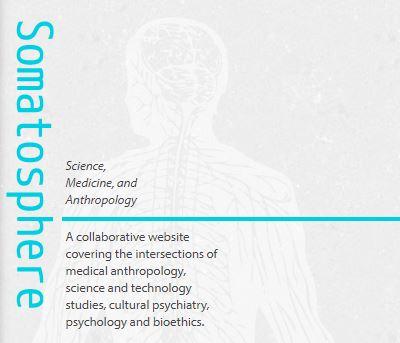By Anna Zogas
At universities, spring brings graduation. I graduated this spring with a PhD in sociocultural anthropology, marking the end of nearly a decade of graduate school. When I graduated, I lost my remote access to the University of Washington’s collection of e-books and journals. In the grand scheme of things, not having access to scholarly journals from the comfort of my home is no crisis. But this interruption in my access to university libraries did make me pause to consider how I read what anthropologists write. Like many people, I am drawn to the field of anthropology because it expands my perspective. I want to know: how do other people live? What matters in their lives? Further, an anthropological perspective offers insight into pressing issues in my own life: how should we understand inequality, oppression, and privilege? How can we promote justice, respect, and understanding? These questions don’t go away because I am no longer a student at a university, and in fact, there are lots of ways to access such information. Although university-based researchers must write for peer-reviewed academic journals (such as American Anthropologist) to advance our careers, many of us also publish our findings in other formats.
Between traditional academic publication channels and public debates there is a “dead space”— anthropological field work and data analysis takes time, as does the publishing process. Research results destined to be printed in academic journals may not be available for months or years, and once results are published, they may be accessible only to people who can use university libraries. The “dead space” exists in part because research and academic publishing are both lengthy processes that don’t readily fit the rapid pace of the news cycle and public debate about current events. One way that anthropologists have sought to fill this “dead space” is by writing for blogs, which provide short reports on new research and anthropological perspectives on current events. The writing comes out more quickly than publications in traditional academic channels, and it is available to anyone interested in reading it.
Here I highlight some of the “group blogs” of sociocultural anthropology. Anthropologists maintain and contribute to several longstanding blogs with wide-ranging content. These sites publish multiple authors’ writing, showcasing their expertise in all kinds of topics and geographic locations. Authors are graduate students, professors, and trained anthropologists working outside of universities. Here, I list some of the sites I most rely on for information and analysis, with the big caveat that I am a sociocultural anthropologist who only reads English, so my list is limited.
-
anthro{dendum} is one of our longest-standing blogs, in existence (under another name) since 2005. This is a general sociocultural anthropology blog whose contributors cover a wide range of topics. The blog is sometimes focused on the state of sociocultural anthropology as a discipline, but also features posts of wider interest, such as a recent critique of Steven Pinker’s Enlightenment Now: The Case for Reason, Science, Humanism, and Progress.
-
For those interested in medical anthropology and global health, Somatosphere is a great source of information. Somatosphere is in its 10th year of providing freely accessible original writing by anthropologists about medicine, science and technology, bioethics, cultural psychiatry, and psychology with a global focus. For example, one recent post explains the story behind an Ebola rapid diagnostic test used in Sierra Leone and Guinea.

-
Anthropoliteia is a blog about police, security, crime, law and punishment around the world. Of particular note is the blog’s Black Lives Matter Syllabus Project, a series in which anthropologists offer insights into how (and what) they teach about race, policing and justice in the United States. This series is a great resource for teachers, and anyone interested in educating themselves about race in the United States.
-
Platypus is a blog written by anthropologists studying science, technology and computing. Topics include online gaming, big data, computation, and the ethics of our use of these newer technologies.
-
Finally, if you prefer your anthropological perspective in audio form, the New Books Network produces high-quality, hour-long conversations with academic authors about their recently-published books.
The New Books Network’s mission is: “raising the level of public discourse by introducing serious authors to a wide public via new media.” The group blogs I’ve highlighted here do the same. Group blogs written by anthropologists are useful for staying informed about what anthropologists are up to and what they’re thinking about. They are also important steps toward making the discipline both public and accessible in new ways. These blogs are truly public in the sense that they can be read by anyone (as opposed to corporate social media which is only quasi-public). However, a piece of writing that is public is not necessarily accessible. For information to be accessible, it must be conveyed in a language that people with diverse levels of education and areas of expertise can understand. Further, information must appear in a format that can be readily converted by audiences with diverse ways of seeing, hearing, and interfacing with technology (for instance, with text to speech software). Anthropology’s current group blogs are (mostly) accessible in both senses; as such, they are an essential part of the field’s role in public discourse.
As the discipline adapts to a changing media landscape, scholars generate new ways to disseminate ideas, works-in-progress, and research findings. Anthropological perspectives move beyond what is obvious and surface-level, providing deep, complicated, and contextualized analysis. “Group blogs” create opportunities for wider audiences to incorporate anthropological perspectives in their understanding and analysis of social problems.
